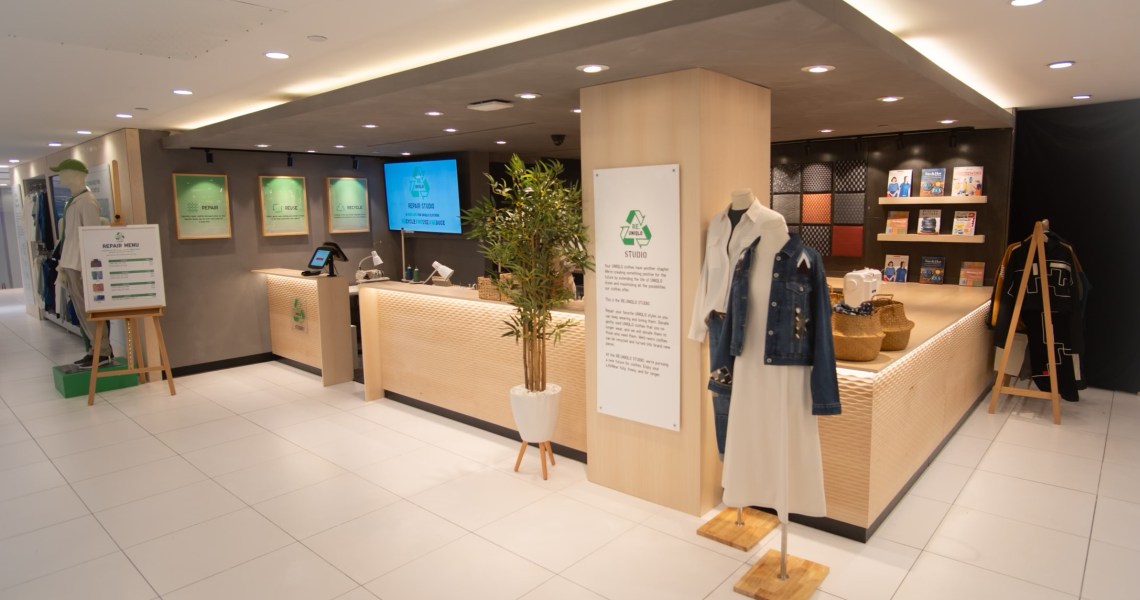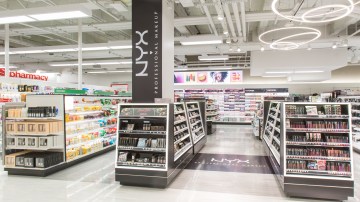It’s been a big year for Japanese fashion brand Uniqlo. Earlier this month, its parent company, Fast Retailing, posted a quarterly profit boost of 18%. At the same time, the company has been planning to expand its global retail network with 80 new stores.
Several of those stores will be in the U.S., a major focus area for the brand’s expansion. To help drive that growth, Yoshihide Shindo was appointed earlier this summer as the brand’s new CEO of operations in the U.S. Uniqlo plans to have more than 200 physical stores in the North America by 2027. In his first interview since his promotion to CEO, Shindo told Glossy two new stores will open this month, bringing the total, so far, to 53. Two Long Island, NY locations will open on October 20.
“Globally, we are the third-largest apparel retailer, with over 2,400 stores,” Shindo said. “It’s an exciting phase of growth as we continue to open stores throughout North America. Expansion in the U.S. is an important step.”
The new stores will have a number of new features Uniqlo has been slowly introducing over the last year. Among them are self-checkout stations and the option to repair previously purchased clothes. Repairs are already offered at Uniqlo stores in Los Angeles, Chicago, Chicago and Florida.
Shindo said the stores will also be hubs for regular community events and influencer partnerships. For an example, he called out a recent event in September where over 400 people in need were allowed to shop for winter clothing at Uniqlo stores free of charge. Over $65,000 worth of clothing was donated.
“Importantly, we do not see our stores as simply a place to sell clothing,” Shindo said. “They are [also about] the communities that we are joining. For every new store we open, we partner with local organizations where our store staff volunteers to help and where our donations collected from customers are sent.”
Uniqlo has worked with both influencers and partner companies like MoMA to promote its stores and bring in more Gen-Z customers. Young shoppers have become significant drivers of the company’s $6 billion in annual revenue that comes from outside of Japan. Fast Retailing’s e-commerce revenues have doubled since the pre-pandemic days but are only 20% of the company’s total revenue. Brick-and-mortar is still king.
While the bulk of Fast Retailing’s short-term retail growth is planned for China, where it will open 80 stores over the next year, North America is the next biggest market, with 20 more stores planned for the next 12 months. More than 80% of the company’s gain in profits in the last year has come from North America and Europe. Since the company already has many stores in major hubs like Manhattan, the new focus is on areas like Long Island which are strong retail hubs but outside of the typical urban centers.
At a time when inflation in the U.S. is pushing customers away from expensive, discretionary spending and toward value and deal-driven retailers, Uniqlo is capitalizing on the opportunity.
“People are looking to reduce surplus things and frills and live simply in their own way,” Fast Retailing founder and CEO Tadashi Yanai said during the company’s full-year earnings call on October 12.
Shindo agreed, saying “In regard to inflation, we’re proud to offer consistent value, in both quality and accessibility. Customers can depend on that, regardless of the economic situation.”




